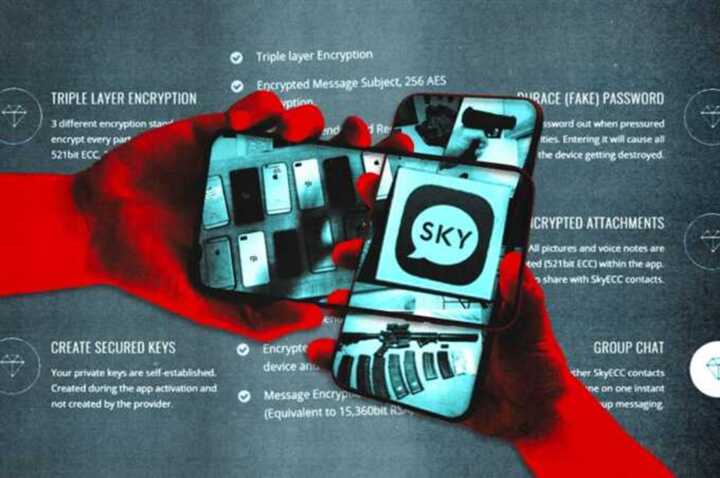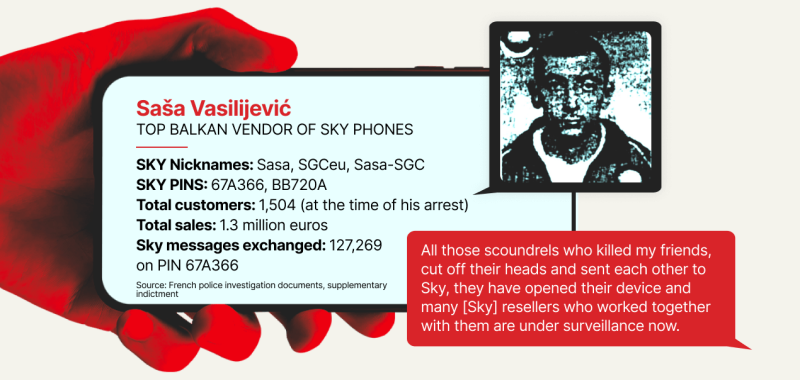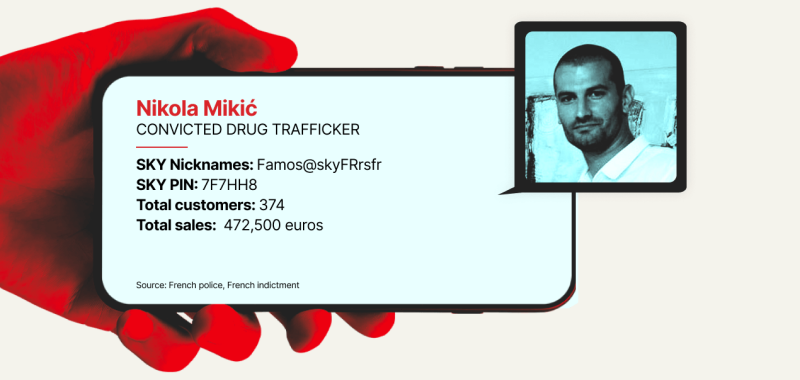
Sky phones were a favorite tool for criminals to discuss logistics. Now, it turns out that some of Sky’s most prolific “resellers” were Serbian criminals affiliated with organized groups that have been wreaking havoc in the Balkans.
“Boom, Mare hits him in the head. … He got a brutal beating, by then, bro, he was already seriously unconscious. … Afterwards, bro, he was all black. He didn’t resist much, didn’t cry, nothing. He was in terrible shock.”
The messages were pouring into the group chat: Srđan Lalić, a member of a notorious Serbian criminal group, and several of his “brothers” were giving their bosses a blow-by-blow account of a murder they had just committed, complete with photographs of the man’s mutilated body.
But Lalić wasn’t just a ruthless gangster — he had a day job too. He was an authorized reseller for a Vancouver-based encrypted phone company, Sky Global, which promised its users they could communicate in absolute secrecy — as long as they also had a Sky phone.
By his own account, Lalić generated as much as 120,000 euros per month in sales for Sky Global, even as he and his group used its flagship product — the Sky ECC encrypted phone — to organize the torture, dismemberment, and murder of their enemies.
“We didn’t use regular phones,” he told French judges last year, testifying as a witness in a case they were mounting against Sky Global and its distribution network. “It was a way of avoiding possible investigations.”
A world of violence and mayhem unfolded inside the secret confines of Sky phones, which were used to plan murders, cocaine smuggling routes, and heists across Europe from 2016 to 2021. When the encryption was finally cracked in a 2021 joint operation by French, Belgian, and Dutch police, messages involving criminal activity in different countries were passed to law enforcement agencies across Europe. In France earlier this year, investigators concluded a multi-year probe into the Sky Global universe and laid charges against 31 people they said had facilitated crime by distributing Sky phones.
For years in Serbia, Lalić’s organized criminal group, the Principi, had enjoyed what many believed was government protection. But the evidence found on the phones — images of tortured and murdered rivals, swapped in jovial group chats — was apparently too shocking to ignore. Lalić and dozens of other Principi members, including accused gang leader Veljko Belivuk, were arrested in 2021.
The following year, Lalić cut a deal with Serbian prosecutors and agreed to testify about his criminal activities, which included taking part in six murders inside a house in a Belgrade suburb nicknamed “The Slaughterhouse,” since victims lured there were often dismembered or run through a meat grinder after being killed. Serbian tabloids breathlessly covered Lalić’s testimony, dubbing him “the Smiling Butcher” after an image of the gangster grinning next to a badly beaten corpse was leaked to the press.

OCCRP
The house in the Belgrade suburbs known as "the Slaughterhouse," where the Principi killed their victims.
Against this lurid backdrop, the detailed statement he gave about his work selling Sky phones attracted less attention. But it provides some of the best insight we have into how the phones made their way into the hands of criminals around the world: often through other criminals acting as resellers.
Lalić told the French judges he had always assumed the company knew its user base included members of organized criminal groups — and claimed he had been told as much in his orientation sessions.
“Sky was well aware that its system was being used by criminal organizations and wanted to avoid prosecution,” he said. “With this in mind, they advised us not to leave any trace and not to say that Sky was being used for criminal purposes.”
Sky Global, the Canadian company that sold the encrypted phones, has insisted that it only ever wanted to create a tool to enable private communication. The company says its terms of use prohibited criminal activity, although like any tech tool, it could be abused by a determined user. But evidence obtained by reporters as part of the Crime Messenger project shows that some of the phone’s most prolific users were organized crime figures.
The Crime Messenger investigation, a collaboration between 13 media partners across Europe and Canada, is the most comprehensive look to date at Sky Global and how its products were sold and used. It is based on a leak of around 3,800 files from the criminal case in France, where the Paris Judicial Court has centralized European proceedings against people associated with the company.
About the Crime Messenger Project
Read more similar news:
Comments:
comments powered by Disqus







































